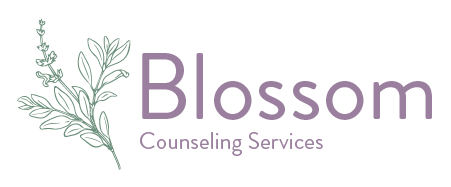For many individuals seeking recovery from addiction, traditional twelve-step programs offer a powerful foundation. However, some may find an even deeper connection with a culturally-specific approach that incorporates their heritage and values.
Wellbriety, a program rooted in Indigenous teachings, offers a unique path to healing and wellness. It emphasizes not just sobriety, but living a good life – a life that is “well” in all aspects.
This blog explores the core principles and practices of Wellbriety, delving into its 12 steps and the philosophy that guides this holistic approach to recovery.
What are the 12 Steps of Wellbriety?
The 12 Steps of Wellbriety build upon the traditional twelve steps, incorporating Indigenous teachings and values. Here’s a brief overview:
- Honesty: We admitted we were powerless over substances and that our lives had become unmanageable. (This step acknowledges the power of the Higher Power and the need for surrender.)
- Hope: We came to believe that a Power greater than ourselves could help us restore sanity. (This step emphasizes the importance of faith and hope in a Higher Power.)
- Letting Go: We made a decision to turn our will and our lives over to the care of the Creator as we understood Him/Her. (This step encourages releasing control and trusting the guidance of the Higher Power.)
- Facing the Past: We made a fearless moral inventory of ourselves. (This step involves deep self-reflection and acknowledging past mistakes.)
- Sharing the Truth: We admitted to the Creator, to ourselves, and to one another the exact nature of our wrongs. (This step emphasizes honesty and taking responsibility for our actions.)
- Willingness: We were entirely ready to have the Creator remove all these defects of character. (This step highlights the willingness to let go of negative traits and embrace change.)
- Humility: We humbly requested of the Creator to remove our shortcomings. (This step emphasizes humility and seeking guidance from the Higher Power.)
- Making Amends: We made direct amends to those we had harmed, except when to do so would injure them or others. (This step focuses on taking responsibility for past actions and making amends.)
- Continuing the Journey: We continued to take personal inventory and when we were wrong promptly admitted it. (This step emphasizes ongoing self-reflection and acknowledging mistakes.)
- Spiritual Connection: We sought to improve our conscious contact with the Creator as we understood Him/Her, praying only for knowledge of Her/His will for us and the power to carry that out. (This step highlights the importance of deepening the connection with the Higher Power.)
- Awakened Power: Having had a spiritual awakening as the result of these steps, we tried to carry this message to others and to practice these principles in all our affairs. (This step encourages sharing the experience with others and living by the Wellbriety principles.)
- Service: Having been awakened to the Higher Power within, we endeavored to carry this message to our brothers and sisters and to practice these principles in all our affairs. (This step emphasizes service and helping others on their own journeys.)
These 12 steps serve as a framework for a holistic approach to healing, integrating spiritual connection, cultural values, and personal responsibility into the recovery process.
What are the Principles of Wellbriety?
While the 12 Steps provide a framework for recovery in Wellbriety, the program’s core principles offer a deeper compass for individuals on their healing journeys. Let’s delve into each principle and explore its significance in Wellbriety:
- Honesty: This is the foundation of Wellbriety. Honesty with oneself requires self-reflection and acknowledging past mistakes and negative patterns. Honesty with others fosters trust and allows for genuine support within the recovery community.
- Hope: Maintaining hope for a better future is essential for staying motivated on the path to recovery. Wellbriety encourages individuals to envision a life free from addiction and filled with possibilities. Hope fuels the courage to keep moving forward even during challenging times.
- Faith: Having faith in a Higher Power, however one chooses to define it, provides strength and guidance on the recovery journey. This faith can be in a traditional God, the spirit world, nature, or even a higher self. The belief in something greater than oneself offers comfort, strength, and a sense of purpose.
- Courage: Facing challenges and taking responsibility for one’s actions requires immense courage. Wellbriety encourages individuals to confront their fears, admit their mistakes, and embrace change. This courage is essential for overcoming past trauma and building a new, fulfilling life.
- Integrity: Living with integrity and honesty is central to the Wellbriety philosophy. This means aligning one’s actions with their values and taking responsibility for the impact of their choices on themselves and others. Integrity fosters trust and respect within the recovery community.
- Willingness: A genuine willingness to change and grow is essential for lasting recovery. This involves being open to new ideas, trying new approaches, and stepping outside of one’s comfort zone. A closed mind hinders progress, while willingness allows individuals to embrace the transformative power of recovery.
- Humility: Acknowledging one’s shortcomings and seeking help is a sign of humility. Wellbriety recognizes that no one can recover alone. By embracing humility, individuals open themselves to the support and guidance of others on their healing journeys.
- Justice and Forgiveness: Healing often requires seeking justice for oneself, such as addressing past abuse or trauma. However, Wellbriety also emphasizes the importance of forgiveness – for oneself and for others. Holding onto anger and resentment can hinder progress, while forgiveness allows individuals to let go of the past and move forward with a lighter heart.
- Perseverance: Recovery is not a linear path; it’s a journey with setbacks and challenges. Perseverance is crucial for overcoming these obstacles and staying committed to the long-term goal of healing. Wellbriety encourages individuals to celebrate their victories, big and small, and to find strength to keep going even during difficult times.
- Spiritual Awareness: Developing a connection with a Higher Power fosters inner peace and guidance. This spiritual awareness can be cultivated through prayer, meditation, spending time in nature, or engaging in cultural practices. A connection to something larger than oneself provides a sense of purpose, belonging, and strength.
- Service: Helping others is a cornerstone of Wellbriety. By giving back to the recovery community or supporting others in need, individuals strengthen their own journeys while fostering a sense of connection and purpose. Service allows individuals to use their experiences to help others find healing and hope.
These principles, woven together, create a powerful framework for healing that goes beyond simply achieving sobriety. Wellbriety empowers individuals to live a good life – a life that is “well” in mind, body, spirit, and culture.
Who Wrote The Red Road to Wellbriety?
While the exact origins of Wellbriety can’t be traced to a single person or text, it’s closely associated with the work of White Bison Inc., a non-profit organization dedicated to creating and sustaining a grassroots Wellbriety movement.
Founded by Beverly Tall Bull and Don Coyhis, White Bison draws upon traditional Indigenous teachings and integrates them with a twelve-step framework to offer culturally-specific healing and recovery.
Their book, The Red Road to Wellbriety, is a valuable resource that delves deeper into the Wellbriety philosophy and its practical application. It serves as a guide for individuals and communities seeking a holistic approach to healing from addiction and trauma.
How Do You Spell Wellbriety?
The correct spelling is “Wellbriety.” It combines the words “well” and “briety,” emphasizing the program’s focus on achieving both sobriety and overall well-being.
In Summary
Wellbriety offers a unique and empowering path to healing for individuals seeking recovery from addiction.
By incorporating traditional Indigenous teachings, the 12 steps, and core principles like honesty, hope, and service, Wellbriety fosters a holistic approach to well-being. It goes beyond simply achieving sobriety and encourages individuals to live a good life – a life that is “well” in mind, body, spirit, and culture.
This culturally-specific program offers a valuable resource for those seeking a path to healing that honors their heritage and values.
Get Started
You may call, text message, email, or fill out the form to reach us. We will respond within 48 hours, Monday through Friday.
We Will Help You Find Your Fit
We know that looking for a counselor can feel overwhelming.
We are here to help guide you to the counselor that is best for your needs. If that counselor turns out to
not be in our practice, that's okay. We know great counselors that we'd be happy to refer you to.
What’s most important to us is that you get connected with the help you need. We are here for you.

